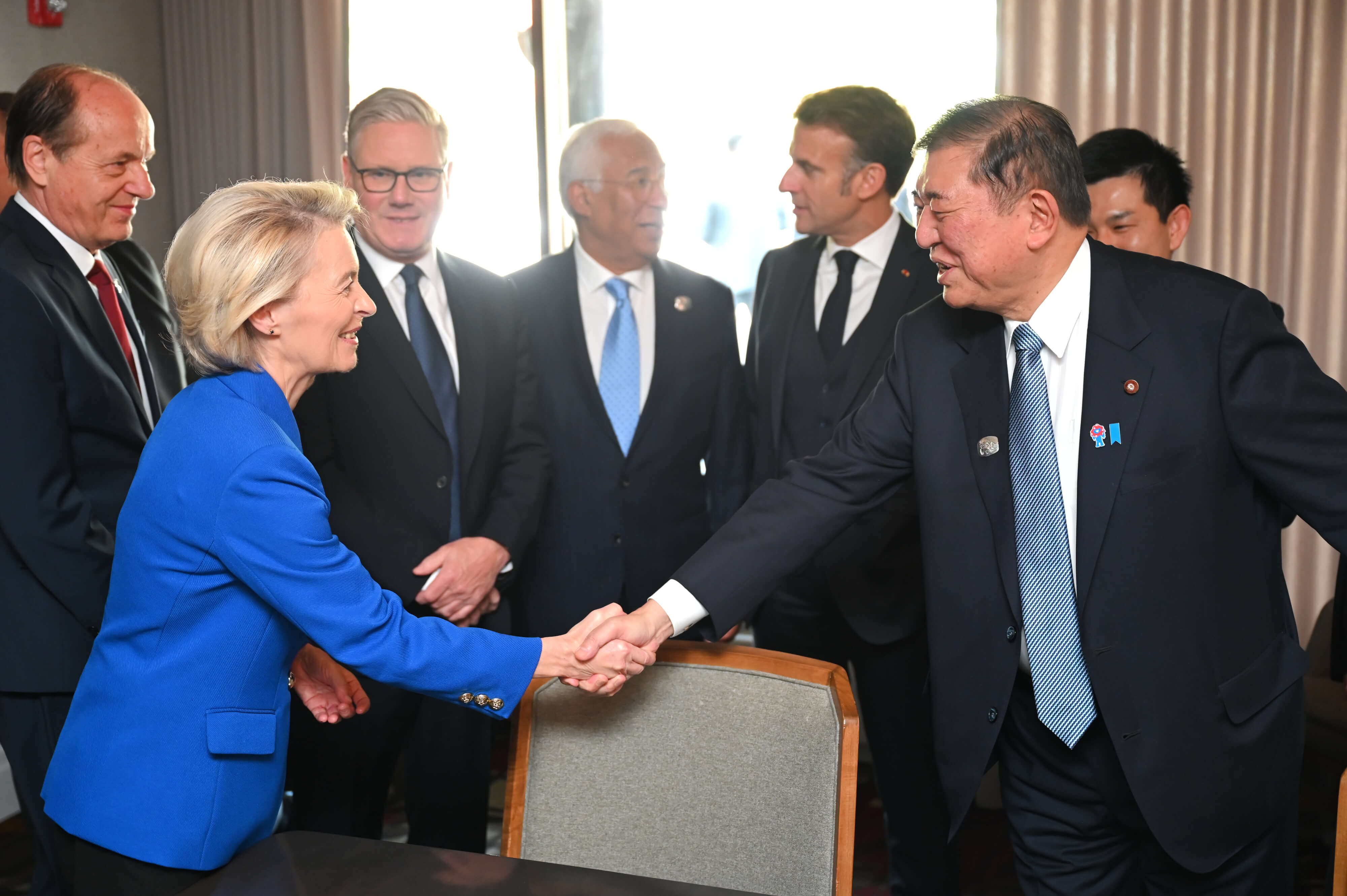US President Donald Trump’s “reciprocal” tariffs amount to a unilateral, self-destructive, and entirely unwarranted challenge to the international order – one with no economic justification whatsoever.
As Willem H. Buiter demonstrated in 1981, the kinds of trade imbalances Trump blindly decries are a useful mechanism for enabling economies with different time preferences to benefit from trade by transferring resources across periods.
Trump’s commitment to ignoring economic reality and squeezing America’s trading partners will end up hurting the United States most of all.
Adam Posen, the president of the Peterson Institute for International Economics, recently noted that America’s global hegemony was based significantly on the country’s provision of global public goods.
Under Trump, however, the US is acting as an “extractor of profit,” without offering anything in return.
The trade agreements that the Trump administration is “negotiating” by threatening partners with high tariffs perfectly illustrate this extractive mindset.
The Trump administration makes even bad deals seem good
Consider the agreement reached with Japan. For starters, its content is rather ambiguous, reflecting the Trump administration’s slapdash negotiating style and preference for premature declarations of victory over conscientious policymaking.
What is clear is that Japanese exports to the US remain subject to a fairly high tariff rate of 15%, with some goods (such as steel and aluminum products) possibly subject to an even higher rate.
Moreover, Japan was forced to pledge $550 billion worth of investment in the US – a significant share of which may well end up in the hands of Trump and his cronies.
For now, the US retains a strategic advantage in negotiations, rooted partly in its offensive posture
If this is the reward for making a deal with the Trump administration, why bother?
For now, the US retains a strategic advantage in negotiations, rooted partly in its offensive posture.
By unilaterally imposing very high tariff rates on economies that have been cultivating the US market for decades, and have thus become dependent on it, the Trump administration makes even bad deals seem good.
A psychological barrier
But for Trump’s negotiating partners, the talks are not just matters of economic calculation.
Almost all of them face a psychological barrier to standing up to the US, which has long been the world’s dominant economy and geopolitical hegemon.
An orthodox way to resist the Trump administration’s trade offensive – which Canada and China have embraced – is to respond in kind, hiking tariffs on US imports.
But it is a risky strategy, which could lead to the collapse of a global trading system that has supported broad-based growth and development for decades.
And, given the economic and psychological factors currently favoring the US, few economies would dare to pursue it.
The only way countries can preserve global trade is to cooperate with one another, rather than “play ball” with the US
But the only way countries can preserve global trade, mitigate the impact of US tariffs, and erode America’s capacity to bully others in the future is to cooperate with one another, rather than “play ball” with the US.
The late Japanese Prime Minister Abe Shinzō pursued a similar strategy to counter Chinese bullying. Abe made it a policy priority to build coalitions of countries that shared Japan’s interest in a “free and open” Indo-Pacific.
Of course, simultaneously attempting to counter China in one sphere (geopolitics) and the US in another (trade) raises challenges of its own.
But China’s trade relations with Japan do appear to be headed in the right direction, despite recent stoking of anti-Japanese sentiment in Chinese cinema.
In late June, China partly lifted a ban on seafood imports from Japan that it had imposed in 2023, after Japan began discharging treated wastewater from the Fukushima nuclear plant.
US global leadership may never recover
In any case, with his unilateral tariffs, Trump is alienating America’s friends and partners, and destroying the trust that has underpinned US global influence.
 With his unilateral tariffs, Trump is alienating America’s friends and partners, and destroying the trust that has underpinned US global influence
With his unilateral tariffs, Trump is alienating America’s friends and partners, and destroying the trust that has underpinned US global influence
The effects can already be seen in financial markets. The ten-year US Treasury bond yield – which spiked after Trump announced his “reciprocal” tariffs in early April – remains elevated, and the US dollar’s value has fallen by around 10% since the beginning of this year.
It does not help that Trump is relentlessly pressuring the US Federal Reserve to lower interest rates, even as his tariffs generate powerful inflationary pressures.
If Trump continues on his current path, he might be able to claim a few more “victories,” in the form of exploitative trade deals with longtime US allies and partners.
But the costs of ignoring basic economic realities will be high, not only for US consumers, who face soaring prices as a result of Trump’s policies, but also for the entire global economy, which may suffer irrevocable harm. US global leadership may never recover.
Koichi Hamada, Professor Emeritus at Yale University, was a special adviser to former Japanese Prime Minister Abe Shinzō.